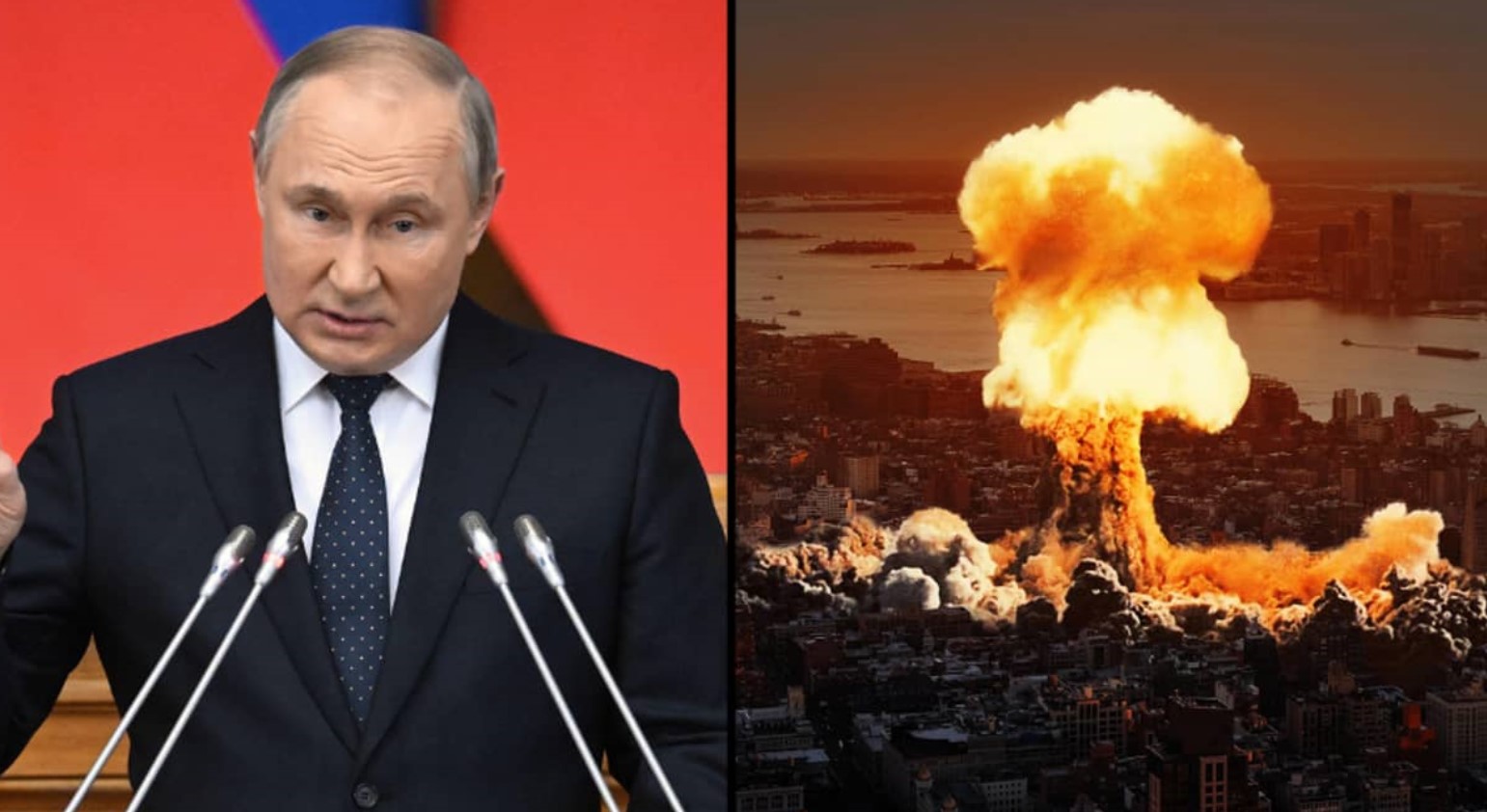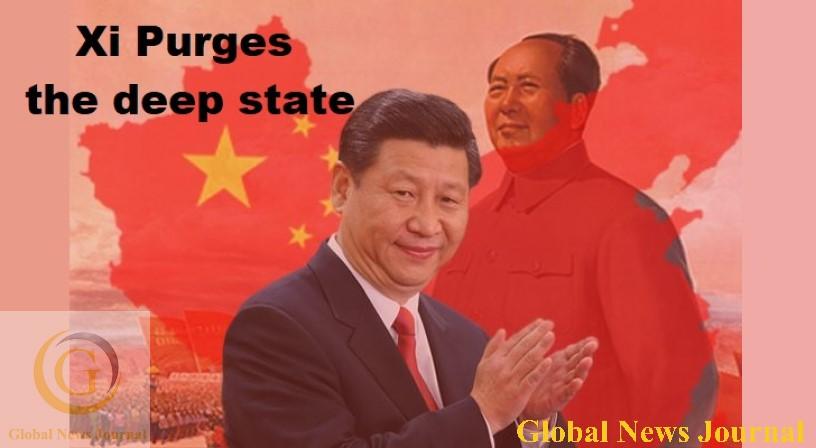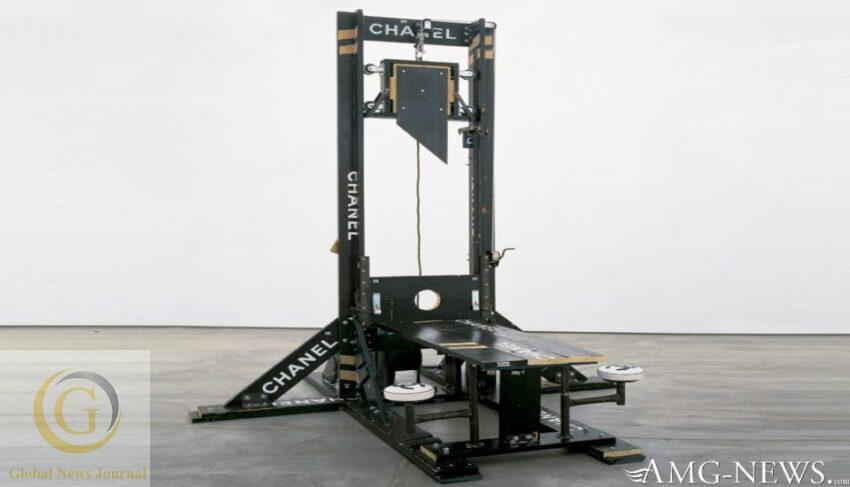Russia-Ukraine Conflict Escalates! Colonel Douglas McGregor’s Explosive Insights on NATO, Putin, and a Looming Global Crisis VIDEO
Ready to uncover the truth? Sick of the lies? Join our Telegram Channel now. It’s time for the real story! My gratitude to all my readers!
Colonel Douglas McGregor’s explosive insights reveal NATO’s aggressive shift, Ukraine’s high-risk strategies, and a looming global crisis as tensions escalate in the Russia-Ukraine conflict.
As the conflict between Russia and Ukraine intensifies, a series of moves, alliances, and controversial decisions are pushing the world towards a perilous crossroads. At the forefront of understanding the implications is Colonel Douglas McGregor, former senior advisor to the U.S. Secretary of Defense, whose bold perspective sheds light on the shadowy layers of this escalating crisis. In an exclusive interview, Colonel McGregor exposes the deeper motives of NATO, highlights the tactical blunders in Ukraine, and warns of a possible wider conflict that could reshape the global order.
Lede
Colonel Douglas McGregor, a seasoned military expert, does not mince words when he describes the situation in Ukraine. According to him, NATO is not the peacekeeping force it once claimed to be, and Western powers are not innocent bystanders. His insights reveal a web of motives and strategies that challenge the mainstream narratives and push us to confront uncomfortable truths. Through his lens, we witness a conflict that is far from over and could spiral into even darker and more volatile territory.
NATO’s Role and Strategy: An Alliance Turned Weapon
Colonel McGregor is unequivocal in his assessment: NATO has drifted from its original purpose. Initially formed to safeguard European nations from external threats, NATO, in McGregor’s view, has now transformed into an aggressive force, often at odds with European stability. According to him, NATO is no longer a shield but a sword wielded by American interests.
The alliance’s recent maneuvers in Eastern Europe, especially its push to integrate Ukraine, have provoked Moscow. This expanded presence at Russia’s doorstep has raised tensions, with the Kremlin interpreting it as a direct challenge to its sovereignty. McGregor suggests that this shift from defense to offense might spell disaster, not only for the regions involved but for the broader international order. This aggressive posturing could be the spark that ignites a larger conflict, as nations question NATO’s role and Europe’s own security stance.
Ukraine’s Military Strategy: Symbolic Strikes with Little Substance
Recent Ukrainian incursions across the Russian border have captured media attention, but McGregor dismisses them as largely symbolic gestures. For example, Ukraine’s advances in areas like Kurds have garnered headlines, yet McGregor sees them as poorly planned operations with minimal military impact. These attacks, he says, are not meant to achieve lasting victories but rather to demonstrate Ukraine’s resilience in the face of Russian aggression.
One of the most concerning aspects is Ukraine’s attempt to seize key infrastructure, such as the K nuclear power plant. McGregor describes this as an act of desperation rather than a genuine strategic win. By targeting lightly defended areas, Ukraine’s forces are effectively poking the bear, provoking Russia without substantial gains. McGregor warns that such provocations risk an escalated response from Moscow, which could spell catastrophe for Ukraine.
Disturbing Allegations: Chemical Weapons in the Ukraine Conflict
Allegations of Ukraine’s use of chemical weapons have emerged, with reports suggesting that 155 mm NATO-standard artillery shells filled with chlorine gas were used against Russian forces. McGregor warns that if these reports are confirmed, Ukraine would be in blatant violation of international law, dragging NATO into a potential war crime scenario. Beyond the ethical implications, the environmental and public health repercussions of chemical warfare are devastating, with consequences that may endure for generations.
Such tactics not only defy legal standards but also place Ukraine in a morally compromised position. McGregor’s stance is clear: chemical weapon deployment would forever tarnish Ukraine’s reputation on the global stage and make it exceedingly difficult for Western powers to justify their unwavering support.
Putin’s Waning Patience: A Shift from Diplomacy to Determination
Russian President Vladimir Putin, previously open to diplomatic solutions, now shows signs of growing impatience. According to McGregor, Putin’s declaration that negotiations with Ukraine are no longer on the table signals a point of no return. This shift suggests that Russia is ready to move beyond dialogue, perhaps even contemplating harsher, more decisive actions to secure its borders and national interests.
For Ukraine, the end of diplomatic avenues marks a dangerous new chapter. Without negotiation options, Ukraine faces a determined Russian military that McGregor believes will not hesitate to escalate if provoked further. Putin’s rejection of dialogue is more than a policy change; it’s a clear message that Russia is willing to take matters into its own hands if pressured.
Western Intervention: A Complicated Web of Military Aid and Media Bias
The West’s involvement in the conflict, particularly the United States and its NATO allies, has been extensive. Military aid flows continuously to Ukraine, prolonging the conflict in a way that McGregor criticizes as needless and destructive. He argues that this support is less about defending Ukraine and more about destabilizing Russia, a strategy that comes with a high cost to Ukrainian lives and Western resources.
Media coverage, McGregor argues, plays a significant role in shaping public opinion and government policy. He accuses mainstream media of biased reporting, often downplaying Ukrainian losses and exaggerating Russian threats. He calls for media accountability and promotes platforms like Ground News for those seeking a balanced perspective. McGregor’s warning is clear: misinformation is a powerful weapon that can mislead populations and fuel unnecessary conflicts.
The US Presidential Elections: A Potential Turning Point in the Conflict
As the US approaches another presidential election, McGregor speculates that the outcome could significantly impact the course of the Russia-Ukraine war. A candidate like Donald Trump has promised to negotiate a swift resolution, in stark contrast to the current administration’s approach. McGregor suggests that Trump’s return to office could signal a strategic pivot, as Trump is likely to prioritize a practical, quick end to hostilities over prolonged engagement.
McGregor also points out that Trump’s previous administration was hampered by advisors who opposed his policies. If Trump returns to office, McGregor stresses the importance of surrounding himself with loyal advisors who are committed to his agenda. The right appointments, he argues, could bring about a shift in US policy that favors negotiation over confrontation, altering the landscape of the Ukraine conflict.
Europe’s Fragile Position: Energy Dependency and Political Shifts
Beyond the United States, European nations also have a stake in the conflict’s outcome. Germany, heavily reliant on Russian energy, faces a unique set of pressures. A prolonged conflict with Russia could spell disaster for Germany’s economy, exacerbating energy shortages and increasing costs for businesses and consumers alike.
McGregor suggests that political changes within key European nations could prompt a shift towards peace negotiations. If leaders in countries like Germany decide that the economic costs are too high, they may press for a resolution that prioritizes stability over continued conflict. Such shifts could weaken NATO’s unified front and lead to fractures within the alliance.
The Broader Threat: Is a Global Conflict Looming?
While the spotlight remains on Ukraine, McGregor warns of a possible larger-scale conflict. The rising tensions in the Middle East, particularly between Israel and Palestine, add a volatile dimension. With the United States committed to supporting Israel, the risk of a broader war involving multiple nations becomes increasingly plausible. McGregor speculates that a regional conflict in the Middle East could divert resources and attention away from Ukraine, creating a dual-crisis scenario that could strain global alliances and destabilize the world order.
If the United States finds itself engaged on two fronts, it would place significant pressure on its military and economic capabilities. McGregor’s message is sobering: the world may be closer to a multi-front conflict than we realize, and the repercussions could be catastrophic.
Military Strategies and Economic Sanctions: Unintended Consequences
Evaluating the military strategies in play, McGregor is highly critical of the Western approach to sanctions. Rather than crippling Russia, the sanctions have forced Moscow to strengthen alliances with countries like China and India. Russia has effectively restructured its economy, reducing its reliance on Western markets and insulating itself from external pressures.
This resilience has left the European Union in a precarious position, particularly given its dependence on Russian energy. Nations like Germany are now struggling to cope with energy shortages and rising prices, leading to an economic crisis within Europe. McGregor emphasizes that sanctions often have unforeseen consequences, and in this case, they have backfired, strengthening Russia rather than weakening it.
Conclusion: An Uncertain Road to Peace
The path to resolving the Russia-Ukraine conflict is anything but straightforward. With so many geopolitical interests at stake, peace appears elusive. The possibility of shifts in European governments and the outcome of the US election may open new avenues for dialogue, yet the specter of escalation looms large. Colonel McGregor’s insights underscore the gravity of the situation and the need for carefully considered solutions.
In McGregor’s view, only a concerted effort towards diplomacy can prevent further bloodshed and chaos. The international community must recognize the risks involved and prioritize peace over prolonged conflict. As the world watches these developments unfold, the stakes continue to rise. In this high-stakes game, only a clear-eyed approach to diplomacy and negotiation can prevent a descent into global turmoil.
Our mission to champion democracy, freedom of speech, and patriotic values relies on the support of dedicated individuals like you. Your contribution is vital in helping us provide insightful analysis, uncover pressing issues, and inspire positive change in our nation.
Join us in our commitment to making a difference. Every donation counts and empowers us to continue our work in advocating for the values we hold dear.
Thank you for being a crucial part of our journey.

I’m a 33-year-old writer and the founder of World Reports Today. Driven by the timeless principles of democracy and freedom of speech, I use my platform and my writing to amplify the voices of those who uphold these ideals and to spark meaningful conversations about the issues that truly matter.






